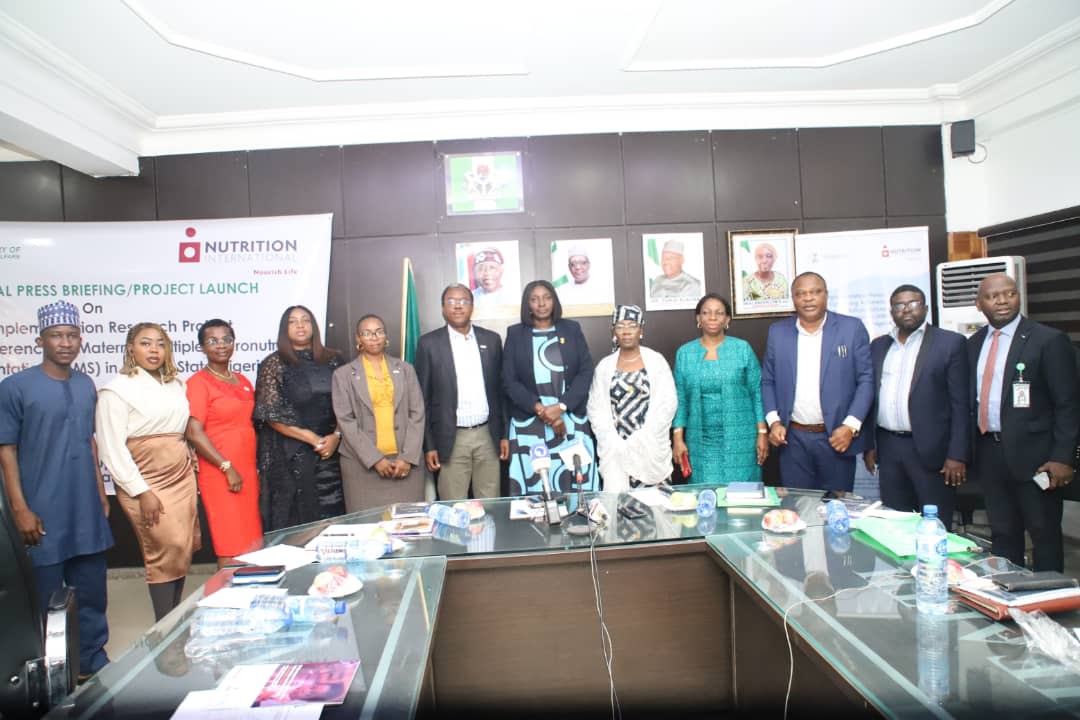News
Nigeria’s Health Ministry Moves To Boost Pregnant Women’s Health, Lower Mortality Rate

-
A 2023 WHO report revealed that Nigeria accounted for the second-highest number of maternal and child deaths globally.
-
Since the Tinubu administration assumed office, the health ministry has often spoken about its desire to cut the high maternal mortality rate.
-
The ministry has now launched an initiative to address the issue.
Eko Hot Blog reports that the Co-ordinating Minister of Health and Social Welfare, Prof. Mohammad Ali Pate, says the Federal Government is committed to promoting a lifesaving initiative to improve quality maternal health outcomes.
According to a statement issued by the health ministry’s spokesperson, Deworitshe Patricia, on Tuesday, the minister disclosed the development during a press briefing after the launch of the programme held recently in the ministry in Abuja.
The move comes after the Minister of State for Health and Social Welfare, Dr. Tunji Alausa, expressed, multiple times, the government’s desire to reduce the maternal morality rate in Nigeria.
Speaking with reporters, Pate noted that based on the 2020 WHO recommendations on antenatal care for a positive pregnancy experience, the Federal Government has adopted the use of Multiple Micronutrient Supplement (MMS) during pregnancy to improve maternal health.
The minister, who was represented by the Permanent Secretary of the Ministry, Daju Kachallom, stated that the inclusion of MMS for pregnant women in the “National Guidelines for the Prevention and Control of Micronutrients Deficiencies Control in Nigeria” is geared towards Improving pregnancy outcomes compared to Iron Folic Acid (IFAs) supplementation.

He explained that vulnerable mothers maintaining that the process requires efficient supply chain systems and building awareness of its health benefits among mothers, communities, and maternal healthcare provider.
“This is why the 3rd pillar of the Health Sector Renewal Investment Programme is focused on unlocking medical value chains, with target to reduce the 41% stock- out rate of family planning products, among others, while the second pillar aims at achieving an efficient, equitable and quality health system and targeting strengthening programs for priority diseases (MTCT, immunization, malaria and MMR),” Pate said.
He argued that, “Beyond making MMS available and accessible, we also need to make the information about its efficacy available to the public, especially to pre – and antenatal women.
“It is well known that pregnancy increases the daily requirement of several vitamins and minerals to meet the nutritional needs of the developing fetus and other metabolic functions. Antenatal MMS is designed to address these heightened demands, which are often not met through diet alone.
“It is particularly useful for pregnant women in poor resource settings where micronutrient intake is typically low due to inadequate dietary diversity limited access to nutritious food, gender inequality, and prevalent social norms.
“It is important to state that MMS is not a vaccine, and is delivered in the form of a tablet, capsule, powder, or liquid that provides a combination of vitamins and minerals in the right amounts as our goal is to deliver equitable, efficient and improved quality health outcomes for all Nigerians irrespective of geographical location or status.”

Mrs. Bako Ayegbusi mni, Director of Nutrition in the Ministry of Health, noted that the critical role of micronutrient in foetal development, neonatal and maternal outcomes, and the elevated prevalence of micronutrient deficiency around the world in women of reproductive age.
She added that WHO’s guidelines recommends that policy makers in populations with a high prevalence of nutritional deficiencies consider providing MMS that include IFA to pregnant women during Antenatal Care to improve maternal health outcome.
The official also said that the country’s policies as well as the National Guidelines for the Prevention and Control of Micronutrient Deficiencies in Nigeria recommends the daily oral consumption of one tablet of MMS for 180 days during pregnancy.
Click here to watch our video of the week:
Advertise or Publish a Story on EkoHot Blog:
Kindly contact us at [email protected]. Breaking stories should be sent to the above email and substantiated with pictorial evidence.
Citizen journalists will receive a token as data incentive.
Call or Whatsapp: 0803 561 7233, 0703 414 5611















